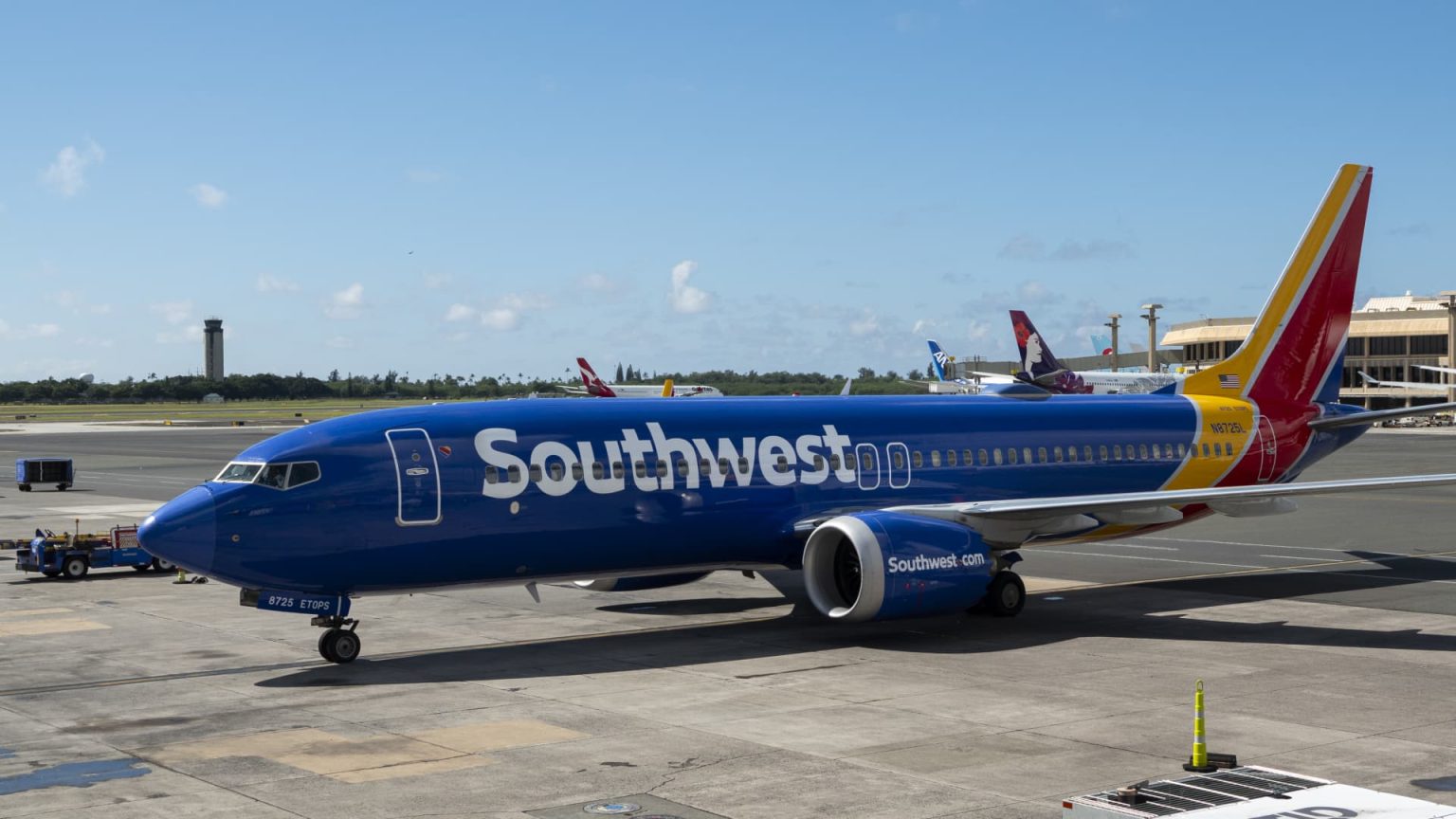A Southwest Airlines flight experienced a scare when the engine cowling of the Boeing 737-800 fell off and struck a wing flap during takeoff from Denver International Airport. The flight was en route to Houston and had to return to the airport. Passengers were transferred to a different aircraft and arrived at their destination three hours late. Boeing is currently investigating the incident, and Southwest Airlines stated that their maintenance teams are reviewing the aircraft. This incident comes as the Federal Aviation Administration (FAA) is already investigating Southwest for another incident in March where a flight strayed off course near LaGuardia Airport in New York. Boeing is also facing scrutiny after a plane door flew off during an Alaska Airlines flight in January.
The incident with the Boeing 737-800 engine cowling falling off in Denver adds to the growing list of quality control issues that Boeing has been facing. These issues have raised safety concerns for both Boeing and the airlines that use its planes, such as Southwest Airlines. Boeing has been experiencing slowed deliveries in recent months, and the FAA certification of its 737 Max 10 model has been facing delays. The company’s CEO, Dave Calhoun, announced his upcoming departure in March, along with other management changes. Airlines like Southwest and United have been affected by Boeing’s ongoing issues, leading to flight reductions and hiring cutbacks.
Boeing’s troubles are not limited to the incident in Denver; the company has been under intensified regulatory scrutiny following multiple safety concerns. The incident of the plane door flying off during an Alaska Airlines flight is just one example. Southwest Airlines, which operates Boeing planes, is now dealing with the fallout from these incidents. The company is facing multiple investigations and potential consequences as a result of these incidents. The FAA is closely monitoring Boeing and its planes to ensure the safety of passengers and crew.
With Boeing facing growing scrutiny and safety concerns, airlines like Southwest and United are feeling the impact on their operations. Flight reductions and hiring cutbacks have been necessary to navigate the challenges presented by Boeing’s quality control issues. The incidents involving Boeing planes have also led to delays in certifications and deliveries, further complicating the situation for both the aircraft manufacturer and the airlines that rely on its planes. The ripple effects of Boeing’s issues are being felt throughout the aviation industry, highlighting the importance of stringent safety measures and regulatory oversight.
The incident in Denver, where the engine cowling fell off a Southwest Airlines flight, is just one of many challenges that Boeing and airlines like Southwest are facing. The company’s quality control issues have raised safety concerns and led to regulatory scrutiny, impacting operations and deliveries. With Boeing’s CEO stepping down and management changes underway, the company is in the midst of a period of upheaval. Southwest and United Airlines are among the carriers that have been affected by Boeing’s issues, leading to flight cutbacks and hiring reductions. The aviation industry will be closely watching as Boeing works to address its challenges and ensure the safety of its planes and passengers.
In conclusion, the incident involving a Boeing 737-800 engine cowling falling off a Southwest Airlines flight in Denver highlights the ongoing safety and regulatory challenges facing Boeing and the airline industry. The incident is just one of many concerns that have arisen in recent months, leading to increased scrutiny and operational disruptions. Boeing’s quality control issues have had a significant impact on airlines like Southwest and United, resulting in flight reductions and hiring cutbacks. As Boeing works to address these challenges, the aviation industry will be closely monitoring the situation to ensure the safety of passengers and crew.


